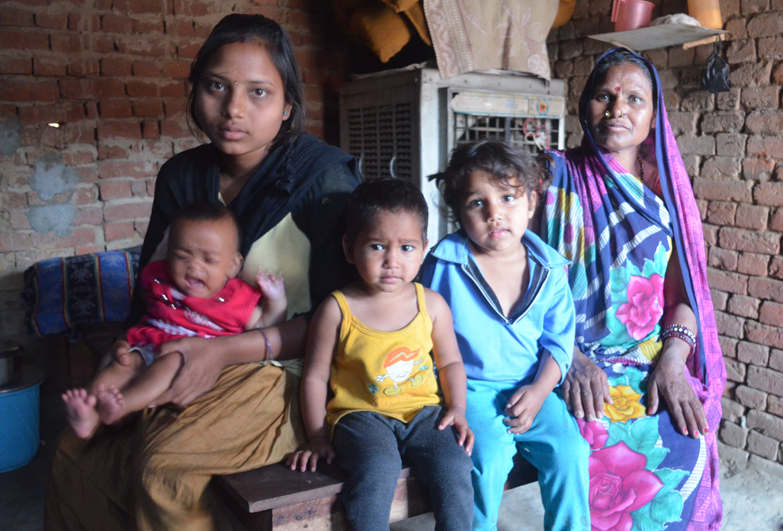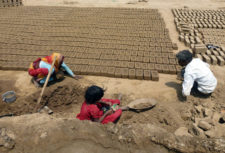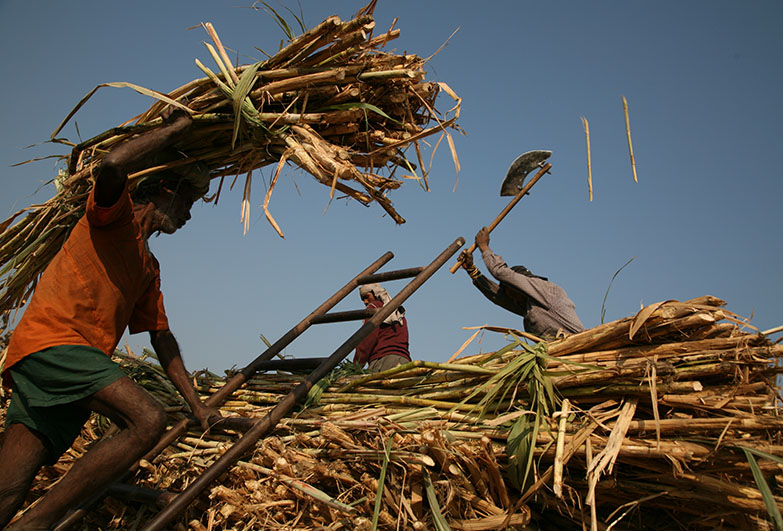
Brick kilns in India employ more than 23 million workers, many of which are workers that migrate for work from other states. When these workers are not working in kilns, they are often working in agricultural fields. Slavery practices in both of these sectors are endemic, with many families falling victim to debt-bondage. This often means their children also work and cannot attend school.
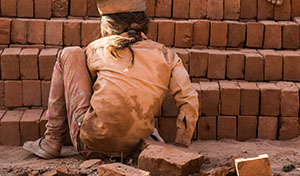
Watch our documentary on brick kilns
Our report and documentary revealed “appalling” levels of slavery and child labour.
Facilitating systemic change
Together with our local partners, we try to address the causes of these slavery practices in an holistic and systemic way by working both in villages from the source state where migrant families originate and in the destination state, where the worksites are located.
We work in Chhattisgarh, Punjab and Uttar Pradesh.
Our partners regularly visit over 150 brick kilns and farms, to raise awareness of rights and government entitlements, monitor working conditions and advocate with kiln owners to improve them. Every year the project reaches out to approximately 50,000 workers and helps identify those in debt bondage.
We encourage workers to come together as groups to advocate for their own rights.
Our partners also reach out to workers in their home villages before they migrate providing critical information and awareness raising sessions and encouraging group advocacy. Over 200 community worker groups have been formed by the workers, with nearly half of them led by women.
The project works to register workers on government social security schemes in order to improve family income security and reduce their dependence on loans and vulnerability to debt-bondage.
We lobby local and national governments, as well as the brick kiln owners, to implement the law and improve working and living conditions.
We work to ensure that children have access to healthcare and education. Thanks to our partners’ advocacy, in 2016 the government of the Punjab developed and started implementing a new policy to ensure children of brick kiln workers go to nursery and primary school. This is a huge step forward in breaking the cycle of slavery.
We focus on the recognition of women as workers so that they are paid and enjoy the same rights as men. We organised the first ever national convention of women brick kiln workers in April 2016.
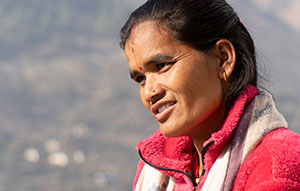
Keep up to date
Receive regular updates on modern slavery and our campaigns straight to your inbox
Releasing workers from debt bondage
The project takes up legal cases and bring complaints to authorities about debt bondage. A toll-free 24-hour hotline is available to brick kiln workers who are highly vulnerable to bondage and exploitation. In just three months, the hotline receives an average of over 1,000 calls to the hotline, which is approximately 10 calls a day.
Year on year, we have obtained an increasing number of release from bondage certificates for workers, despite the state of Punjab still not recognising that bonded labour exists. The certificates serve as a proof for workers that they don’t owe any money to the kiln owners and landlords and help them obtain unpaid wages and compensation.
As part of the project we also take up legal cases, bring complaints to authorities about debt bondage and pursue the prosecution of those using bonded labourers.
Our partners provide temporary rehabilitation centres to provide support for families of bonded labourers after they are initially released.
We help nearly 2,000 workers to be released from debt bondage every year.
Our project partners:
- Volunteers for Social Justice (VSJ)
- Jan Jagriti Kendra, (JJK)
- Jan Sahas – Social Development Society
Puspal – former brick kiln worker
“My family had been working in a kiln for five years but didn’t seem to be earning any money. Whenever we asked, the debt was still not paid.
On a promise of a commission we brought more families from Chhattisgarh, but the new workers were not paid and were starving. They tried to leave, but two got caught and they locked them up and beat them.
My husband Raju went for help to Volunteers for Social Justice. I was pregnant then and I fell very ill. Luckily someone from Volunteers for Social Justice came and took me to hospital.
We now live in the temporary rehabilitation centre, and Raju now works for Volunteers for Social Justice.
But I am still scared. I fear for my children.
What if they become like us, without a house, without food, always desperate…”
